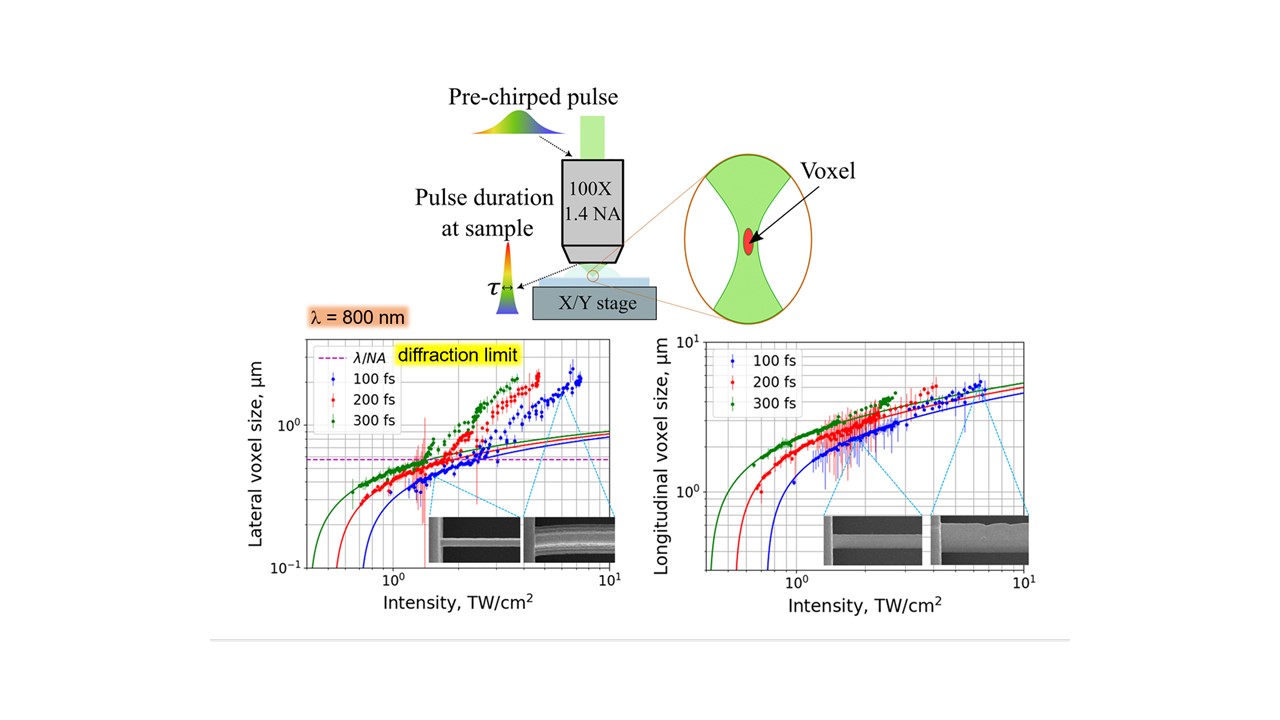2023.01.30
[Paper] “3D nanopolymerization and damage threshold dependence on laser wavelength and pulse duration” published by WRH professor Saulius Juodkazis

WRH professor Saulius Juodkazis (School of Materials and Chemical Technology) published a paper in Nanophotonics.
“3D nanopolymerization and damage threshold dependence on laser wavelength and pulse duration”
https://doi.org/10.1515/nanoph-2022-0629
Abstract:
The dependence of the polymerization and optical damage thresholds in multi-photon polymerization (MPP) lithography was studied using a broadly-tunable laser system with group delay dispersion (GDD) control. The order of non-linearity and the light–matter interaction mechanisms were investigated using the resolution bridges method for non-photosensitized SZ2080TM and photosensitized SZ2080TM + IRG369 prepolymers. Energy deposition, voxel dimension growth, and the size of the dynamic fabrication window (DFW) were measured in the 700–1300 nm wavelength range at three different pulse durations measured at the sample – 100, 200 and 300 fs. Polymerization was observed at all wavelengths and pulse durations without significant differences in the achieved minimal spatial dimension ( <300 nm). This was achieved despite the broad range of excitation wavelengths used which spanned two- and three-photon absorption bands, and the differences in the absorption spectra of the prepolymers. The lateral and longitudinal voxel growth dynamics revealed an abrupt change in the power dependence of polymerization and a significant variation of the DFW – from 1 at 1250 nm to 29 at 700 nm. This result can be interpreted as a consequence of a change in the instantaneous refractive index and a lowering of the polymerization but not the damage threshold. The optimization of energy delivery to the material by a wavelength-tunable laser source with pulse duration control was experimentally validated. These findings are uncovering the complexity of polymerization mechanisms and are useful in further development of MPP technology.

